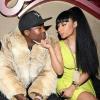getting mother's body: inheritance
By hannahOctober 19, 2016 - 02:20

i know this is late, i'm sorry! midnight tuesday isn't a great deadline for me because i go into rehearsal at 5 and get out (and start studying) at 11. anyway. here's what we talked about in class today.
***
"people will talk. let them talk. i can bear it. i am a beede... june flowers is a beede by marriage, not birth, so what june flowers can bear is another story." (roosevelt, page 51)
later (page 107), roosevelt expands on this, noting that
"there's lots of families i coulda been born into, families with more luck, or more money, but being a beede means being able to bear the unbearable, so i guess i would rather be a beede than be anybody else in all the world."









